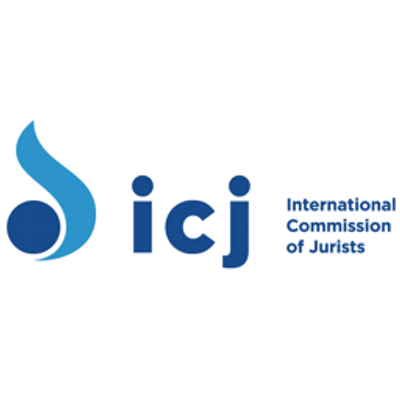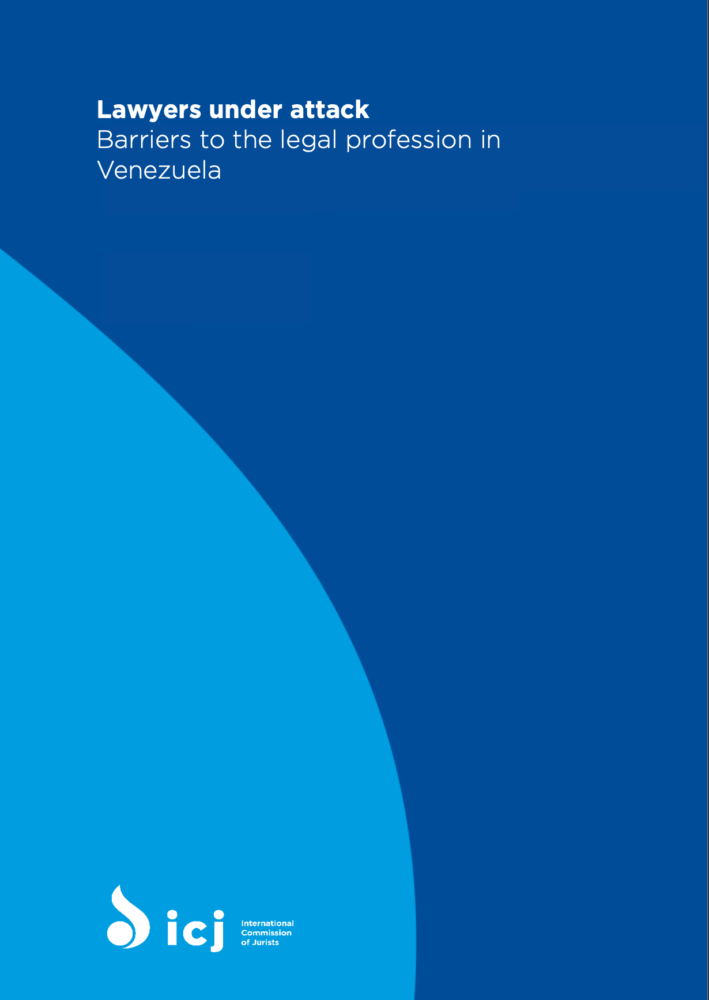«Venezuela se ha convertido en un entorno hostil para el funcionamiento de una profesión legal independiente y responsable, que es una condición previa para una sociedad basada en el estado de derecho y donde se protegen los derechos humanos», dijo Ian Seiderman, Director Legal y de Políticas de la CIJ.
In a briefing paper released today, the International Commission of Jurists (ICJ) calls attention to the numerous obstacles and restrictions that Venezuelan lawyers face in exercising their profession.
Lawyers acting independently are frequently subjected to harassment, intimidation, and even criminal sanction. Lawyers acting in high-profile actions, particularly politically charged cases, or those involving human rights violations are at particular risk.
As the paper demonstrates, the institutional environment fails to adequately provide for independence within the justice system or the protection of human rights.
“Venezuela has become a hostile environment for functioning of an independent and accountable legal profession, which is a precondition for a society based on the rule of law and where of human rights are protected”, said Ian Seiderman, ICJ Legal and Policy Director.
The briefing paper also underscores that in a context of increasing authoritarianism, the situation of the legal profession has deteriorated over the last decade. Certain public authorities, including prosecutors, judges, police officials and intelligent agents, have acted to suppress or failed to implement the guarantees necessary to facilitate a robust legal profession that can play its role in the fair administration of justice. On other occasions, lawyers are subjected to variation forms of pressure, harassment, intimidation, or persecution by private parties who act with the support, tolerance or acquiescence of State authorities.
“The independent and free exercise of the legal profession is essential for the protection of human rights, including the rights to a fair trial, due process and effective remedies. By failing to protect the legal profession, the authorities are also breaching their international legal obligations to ensure the rights of all”, stressed Seiderman.
Bar associations have similarly been the target of unwarranted interferences, and accordingly have been unable to play their essential role in defending the independence of the legal profession of their members.
The ICJ recommends that the Venezuelan authorities:
- Cease and desist from all actions aimed at limiting the free, independent, and safe exercise of the legal profession, including the undue criminalization of lawyers.
- Carry out effective, impartial, and independent investigations of the threats, attacks and harassment committed against lawyers.
- Guarantee in practice the ability of lawyers to meet for an adequate time and in a confidential manner with their clients who are deprived of their liberty.
- Ensure the autonomy and independence of the bar associations, under law and operational.
Background
The ICJ has over the past decade documented the steady and persistent erosion of the rule of law and human rights protections in the Venezuela. Since 2014, the ICJ has produced a number of reports focussing, especially around the failures of the justice sector in securing human rights and accountability. The reports Strengthening the Rule of Law in Venezuela (2014) and Venezuela: The Sunset of Rule of Law (2015) document the breakdown of laws and institutions aimed at ensuring the fair administration of justice and a government that acts within the constraints of the rule of law. The report entitled Achieving Justice for Gross Human Rights Violations in Venezuela (2017) addresses the near-total lack of accountability for those responsible for gross violations of human rights, as well as insurmountable obstacles that victims faced in accessing remedies, justice, and reparation. The report Supreme Court of Justice of Venezuela: An Instrument of the Executive Branch (2017) explains the effective takeover and co-optation of Venezuela’s highest court by the governmental authorities. The Trial of Civilians by Military Courts in Venezuela (2018), takes a closer look at the pervasive misuse of the military justice system to deny civilians the right to a fair trial. The report No Room for Debate: The National Constituent Assembly and the Crumbling of the Rule of Law in Venezuela (2019) assesses the erosion of the separation of powers in the country, while the report Judges on the tightrope: Independence and Impartiality of the Judiciary in Venezuela (2021) examines the deterioration of the independence of courts and tribunals in the country, especially due to the co-optation of the Supreme Court of Justice by the executive branch.
You can download the paper in English or in Spanish.
Contact:
Carolina Villadiego Burbano, ICJ legal Adviser for Latin America. Email: carolina.villadiego@icj.org
Rocío Quintero M, Legal Adviser for Latin America. Email: rocio.quintero@icj.org

Enviado por Gabriela Buada



